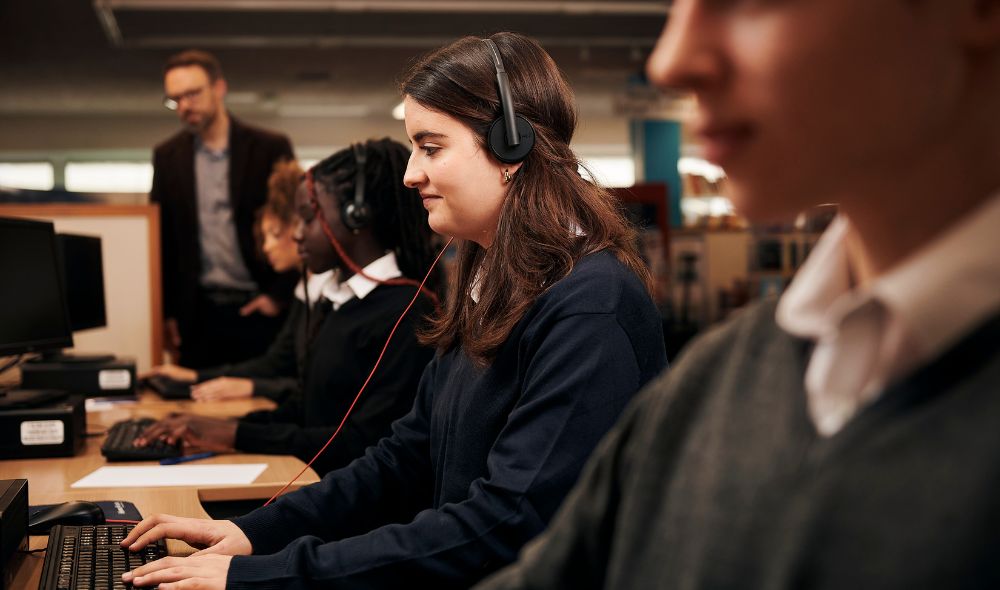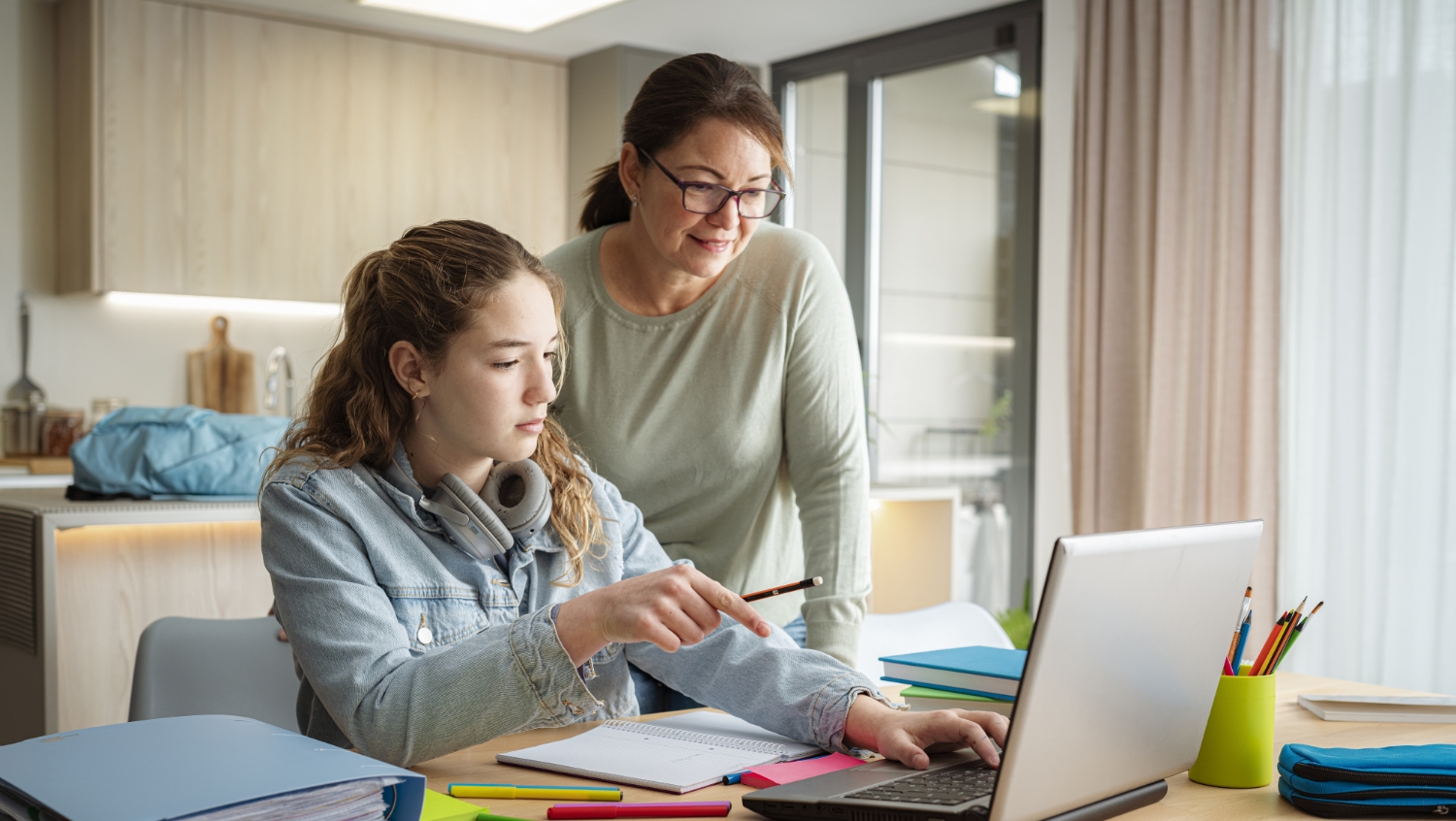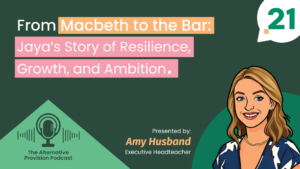How to ensure successful student reintegration

If your student has been away from school for an extended period, returning to the classroom may feel like a distant possibility. The longer they remain absent, the more challenging it can be for them to readapt to a classroom setting, reconnect with their teachers and colleagues, get used to the school schedule, and catch up on missed lessons.
For schools, there are many variables involved in this process, too – from ensuring that students are reintegrating at the right time (when they are in the right headspace and have gotten the support they need), to developing a plan that makes for a smooth and comfortable transition, boosting the chances of long-term reintegration success.
In the UK, 19.4% of students are marked as persistent absentees (having missed 10% or more of their lessons). Despite the significant drop of 24.2% in absenteeism levels from Autumn 22/23 to 23/24, they are still far above pre-pandemic levels, making this a pressing concern for the education sector.
The latest attendance guidance underscores a support-first approach, emphasising early and proactive intervention. This new focus is vital as schools strive to address the myriad reasons behind student absences and to support students as they re-enter their learning environments.
What is reintegration?
Reintegration is the process of returning absent pupils into their regular classroom. There are several possible reasons for this absence, such as medical issues, anxiety or trauma. The reintegration process aims to support students in dealing with these circumstances in the best way possible, helping them improve their mental and physical wellbeing so they can, in the end, get back to their school environment. The goal is to make the transition easier for students, so they feel confident and comfortable coming back, and can continue with their learning.
In the UK, schools are placing a lot of emphasis on reintegration as a result of the most recent attendance guidelines. These guidelines emphasise early and proactive intervention through a support-first strategy, meaning children and young people should receive support as soon as any issue arises to avoid long-term absence or escalating problems.

Why is reintegration important?
Reintegration is crucial for several reasons. First, it helps students who have been out of the classroom catch up with their learning, ensuring they do not fall behind academically. Second, it addresses the emotional and social needs of students, helping them rebuild confidence and re-establish connections with their school community. Successful reintegration can improve overall student wellbeing, reduce dropout rates, and enhance long-term educational outcomes. With schools under pressure to manage high levels of absenteeism, effective reintegration strategies are essential for maintaining educational continuity and fostering a supportive learning environment.
How schools can support reintegration
Schools play a pivotal role in supporting reintegration by implementing strategies that address both academic and emotional needs.
Here are key approaches schools can take:
- Personalised support plans: Tailoring support to each student’s specific needs can make a significant difference. Schools should develop individualised plans that address the unique challenges each student faces, including academic support and emotional wellbeing.
- Gradual transition: A phased return to school can help students adjust more comfortably. This might involve a hybrid learning approach where students gradually increase their time spent in the classroom while still engaging with physical or online alternative provision.
- Regular monitoring: Schools need to keep track of students’ progress and wellbeing. Regular check-ins and communication with students and their families can help identify issues early and adjust support as needed.
- Building confidence: Creating a positive and welcoming environment is essential for students who are returning to school. Encouraging participation and celebrating small successes can help build the confidence needed for a successful reintegration.

How online alternative provision can help with reintegration
Online alternative provision offers a flexible and effective solution to support students during their reintegration process. Here’s how online AP can make a difference:
Flexible learning
Online AP provides a flexible learning environment that can be adapted to meet individual needs. Students can participate in live lessons from home or their preferred location, allowing them to engage with their education in a way that suits their circumstances. This flexibility can be particularly beneficial for students with medical needs or those who experience anxiety about returning to a physical classroom.
At Academy21, school timetables are also flexible to support hybrid learning models and encourage students to attend some of their lessons in their physical mainstream school, if they can. Plus, our students can access class recordings so if they have an important appointment to attend, they can easily watch their lesson at another time.
Maintaining connection
Online AP like can be integrated with the student’s physical school experience. At Academy21, we are fully adaptable to the school’s needs and requirements. Our team aims to collaborate closely with the school so that students are not completely taken away from their traditional learning environment and can keep in touch with friends or teachers.
This approach helps students stay connected to their school community and maintain relationships, which can ease the transition back to full-time classroom learning.
Immediate access
Effective Online AP should enable immediate enrolment. At Academy21, for instance, we can enrol student in as little as 48 hours, and the process is incredibly straightforward. Our mission is to provide students with timely support when they need it most. Because we are fully online, we don’t have the capacity issues that physical environments will inherently have, meaning we can always accommodate your students, even with little notice. This quick access to alternative education helps prevent issues from escalating and ensures that students can begin their next educational chapter without any friction.

Comprehensive monitoring
Online providers like Academy21 offer detailed tracking of student progress, including attendance, engagement, and academic performance. This data enables schools to monitor students closely and make informed decisions about their reintegration process. Regular updates and feedback from the online alternative provision schools are working with helps them tailor their support strategies effectively.
This data can also be incredibly valuable to keep parents informed about their child’s progress and assure them that the school is taking the best course of action to support the student and ensure educational continuity.
Aligned curriculum
At Academy21, we know from our experience over 20 years and from research that a ‘well planned, broad, ambitious and tailored curriculum’ is fundamental. Our broad curriculum for Key Stage 3 and 4 (and Key Stage 2 and 5 via our sister school, King’s InterHigh) is designed to align with national curricula. This means that students receive an education that complements their mainstream education and won’t create any learning gaps in the process. This continuity of high-quality education also makes the transition to mainstream school a lot smoother for students – making them more confident that they are at the same level as their peers.
Student reintegration with Academy21
As the leading online alternative provision specialist, Academy21 can support schools and organisations in successfully reintegrating students into their mainstream classrooms. Our online classes use tech tools to boost engagement and interaction, and our flexibility of schedules enable students to balance online alternative education with classes in their physical school. We are also fully adaptable, making it easier for schools to scale our provision up and down as needed and as their students progress.
Moreover, we are committed to providing a high-quality education and can cater to the needs of every student, offering the right support at the right time.
Contact our friendly team if you have any questions about how we can support your reintegration plans or to enrol a student.
Written by
Academy21
Posted on
17/09/2024
Updated on
26/09/2024
Topic
Student successPost type
Blog


